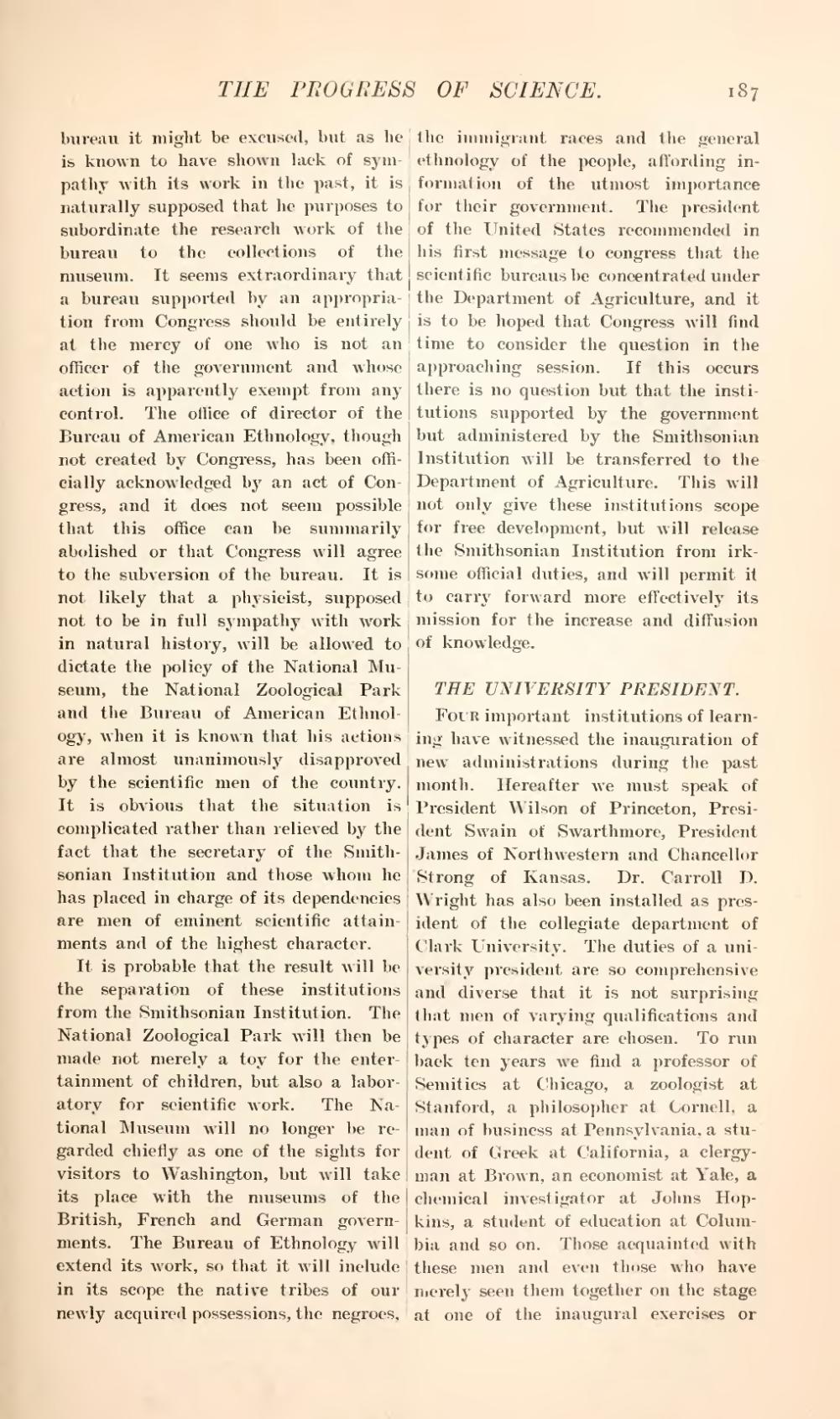bureau it might be excused, but as he is known to have shown lack of sympathy with its work in the past, it is naturally supposed that he purposes to subordinate the research work of the bureau to the collections of the museum. It seems extraordinary that a bureau supported by an appropriation from Congress should be entirely at the mercy of one who is not an officer of the government and whose action is apparently exempt from any control. The office of director of the Bureau of American Ethnology, though not created by Congress, has been officially acknowledged by an act of Congress, and it does not seem possible that this office can be summarily abolished or that Congress will agree to the subversion of the bureau. It is not likely that a physicist, supposed not to be in full sympathy with work in natural history, will be allowed to dictate the policy of the National Museum, the National Zoological Park and the Bureau of American Ethnology, when it is known that his actions are almost unanimously disapproved by the scientific men of the country. It is obvious that the situation is complicated rather than relieved by the fact that the secretary of the Smithsonian Institution and those whom he has placed in charge of its dependencies are men of eminent scientific attainments and of the highest character.
It is probable that the result will be the separation of these institutions from the Smithsonian Institution. The National Zoological Park will then be made not merely a toy for the entertainment of children, but also a laboratory for scientific work. The National Museum will no longer be regarded chiefly as one of the sights for visitors to Washington, but will take its place with the museums of the British, French and German governments. The Bureau of Ethnology will extend its work, so that it will include in its scope the native tribes of our newly acquired possessions, the negroes, the immigrant races and the general ethnology of the people, affording information of the utmost importance for their government. The president of the United States recommended in his first message to congress that the scientific bureaus be concentrated under the Department of Agriculture, and it is to be hoped that Congress will find time to consider the question in the approaching session. If this occurs there is no question but that the institutions supported by the government but administered by the Smithsonian Institution will be transferred to the Department of Agriculture. This will not only give these institutions scope for free development, but will release the Smithsonian Institution from irksome official duties, and will permit it to carry forward more effectively its mission for the increase and diffusion of knowledge.
THE UNIVERSITY PRESIDENT.
Four important institutions of learning have witnessed the inauguration of new administrations during the past month. Hereafter we must speak of President Wilson of Princeton, President Swain of Swarthmore, President James of Northwestern and Chancellor Strong of Kansas. Dr. Carroll D. Wright has also been installed as president of the collegiate department of Clark University. The duties of a university president are so comprehensive and diverse that it is not surprising that men of varying qualifications and types of character are chosen. To run back ten years we find a professor of Semitics at Chicago, a zoologist at Stanford, a philosopher at Cornell, a man of business at Pennsylvania, a student of Greek at California, a clergyman at Brown, an economist at Yale, a chemical investigator at Johns Hopkins, a student of education at Columbia and so on. Those acquainted with these men and even those who have merely seen them together on the stage at one of the inaugural exercises or
